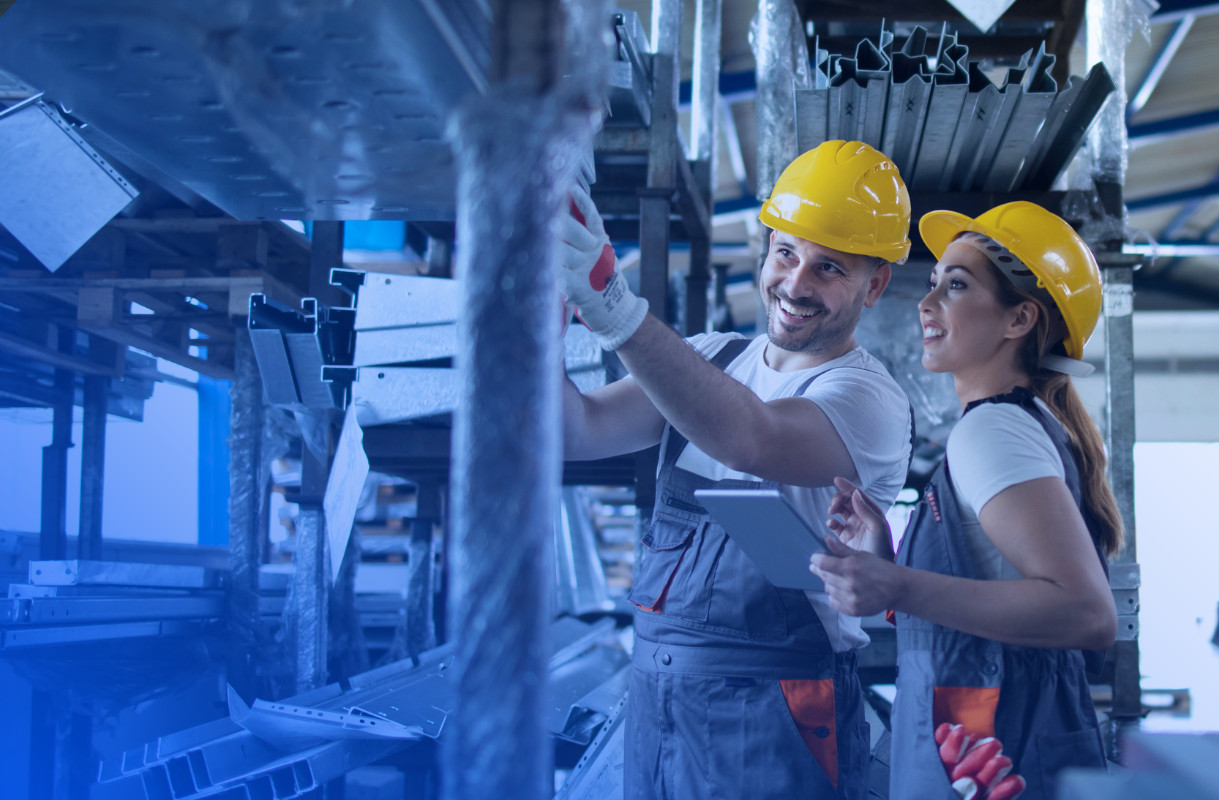How to prevent downtime and failures on the production line?
Sudden failure may cause:
Delays in project implementation. Depending on the situation, your company may have to cover additional costs related to extended working hours, faster deliveries of other items or even the need to hire external workers.
Additional costs. A sudden failure generates costs related to repairs, loss of raw materials and products, as well as unplanned machine downtime.
Loss of competitiveness. In the worst case scenario, your company may lose its competitiveness to companies that are able to deliver their products or services on time.
How to prevent failures in production? Start with prevention.
If you want to reduce the risk of production failures and ensure the efficiency of production processes, it is worth starting with preventive measures against unplanned downtime. For example, our company's services include carrying out preventive maintenance activities and performing routine maintenance works, such as:
- cleaning in ultrasonic cleaners,
- replacement of worn parts,
- preventive replacement of components,
- regeneration of damaged laminate.
Planning maintenance well in advance will additionally protect your plant against possible failure and costs related to unplanned downtime.
How to ensure production safety?
Preventing production line interruptions or delays requires a comprehensive approach based on a preventive maintenance strategy. Below we comprehensively discuss the elements you need to take care of if you want to ensure proper production safety.
Machine condition monitoring
Systematically check and analyze the condition of machines and predict the life of their spare parts.
Keeping accurate documentation of the condition of machines and components will allow you to monitor their condition on an ongoing basis and identify potential threats at the early stages. However, thanks to the analysis of historical data, you are able to estimate the probability of failure and plan appropriate preventive actions. This approach will significantly reduce the number of machine failures in the future.
Monitoring the condition of machines can be improved by measurement systems. Thanks to the measurement system, you are able to quickly detect potential threats and take corrective actions even before a failure occurs.
The iba measuring system that you will find in the ADEGIS offer is:
- minimizing downtime,
- increasing production efficiency,
- process optimization,
- saving energy and raw materials,
- improving and documenting product quality,
- preventing critical machine states.
Find out more about the iba system here: https://adegis.com/media/asset/a21f9b659561c1ed9d518ea96be7f8e706d2667fbcd682e726f9190d56201009.pdf
Staff training
Continuous improvement of maintenance management processes through regular staff training in identifying failure symptoms and effective repair methods can effectively minimize the risk of unplanned downtime and directly affect production continuity. The acquired knowledge allows employees to more quickly identify potential threats and take necessary actions before a failure causes an interruption in production.
Staff training also allows you to gain knowledge about best maintenance practices and use it in practice. By implementing regular training, the company not only invests in the development of its employees, but also in ensuring the efficiency of production processes.
Warehouse
Constant access to spare parts directly affects the proper functioning of production.
Providing constant access to the right parts allows you to quickly replace worn or damaged components, thanks to which you take preventive measures to prevent failures and downtime. If a machine fails, quick and easy access to the component is extremely important to minimize downtime in the production process.
We remind you that the costs associated with storing spare parts include:
- Storage and warehouse management.
- Management staff, IT systems and infrastructure for storing and monitoring inventory.
- Spare parts themselves, which can be expensive especially if they are specialized, manufactured by a limited number of suppliers or require import from abroad.
- Costs associated with installation and maintenance.
Moreover, improper inventory planning, too many surpluses or too few spare parts can lead to excessive costs and waste of resources.
What if the costs of managing spare parts turn out to be fatally high for the functioning of the company?
An alternative worth considering is working with a trusted supplier. A responsible partner will not only provide the necessary components in the event of a failure, but will also help you repair, replace or sell the faulty component.
By working with ADEGIS, you gain express support from qualified employees and constant access to stocks of over 60,000 spare parts. Regardless of whether you are experiencing a sudden breakdown or are acting preventively - we will send the components you need within 24 hours.
Summary
A sudden production failure has a holistic impact on the operations of your plant. Remember to take care of production quality early on or - if you don't have the opportunity - to react quickly before your company suffers losses.
Since 2010, we have been ensuring production safety in the largest Polish plants, and for over a year we have also been supporting foreign ones. Discover the possibilities of ADEGIS: https://adegis.com/en/pages/about-us and see what you can gain from cooperation.
Stay up to date with the news:
https://www.facebook.com/adegis.global/
https://www.linkedin.com/showcase/adegis-global
https://twitter.com/ADEGIS_pl
